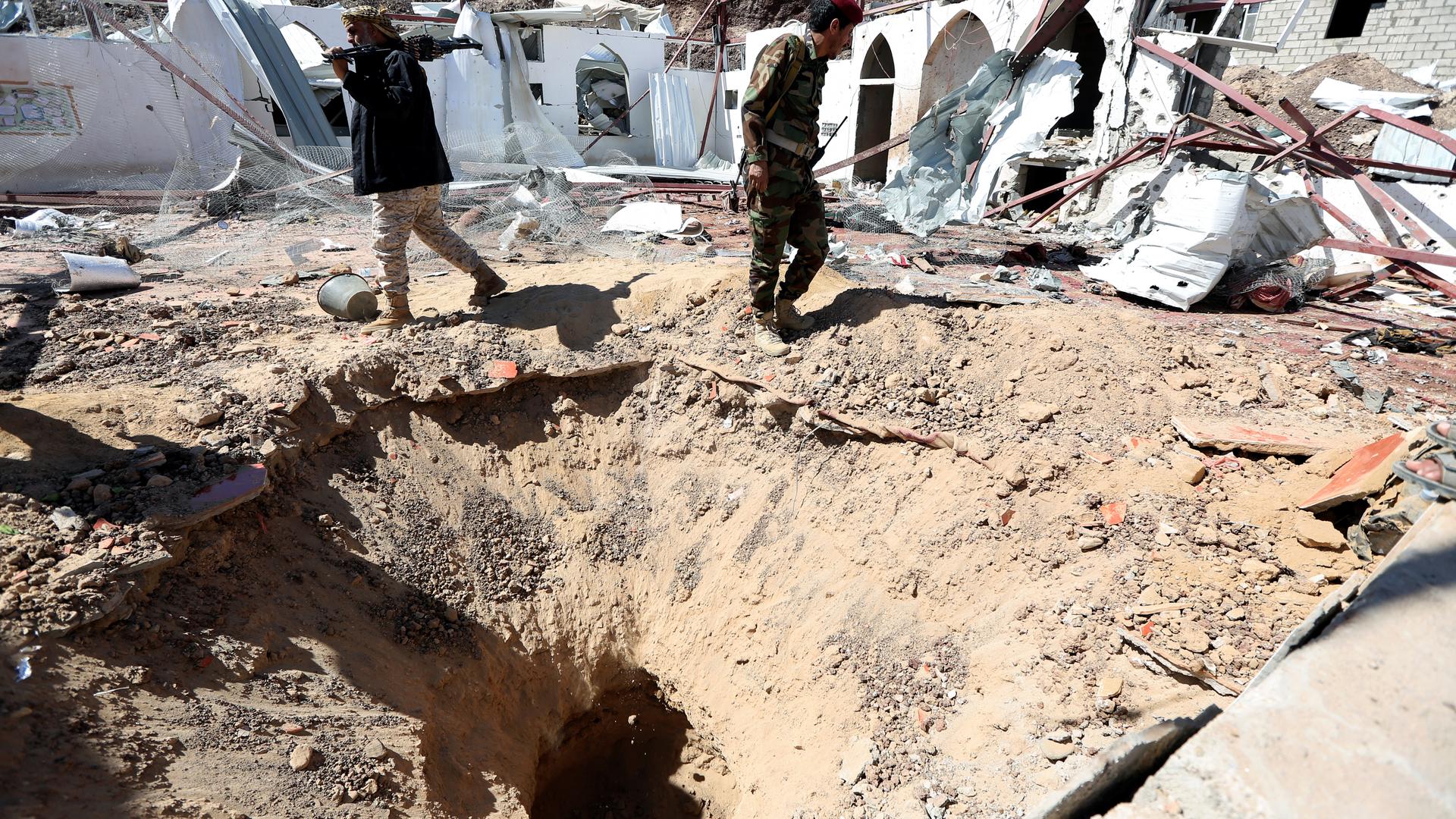The Yemeni people cannot afford another setback to peace.
Marib is situated roughly 110 kilometres east of Yemen’s capital, Sanaa. This oil-rich province has experienced relative stability in recent times despite the war-torn country’s nearly five-year-long war that has produced the world’s worst humanitarian disaster. Yet earlier this month, Marib city became the centre of Yemen’s latest escalation.
On January 18, Houthi rebels targeted the al Estiqbal military training camp, used by the Saudi-led coalition and forces loyal to Yemen’s UN-recognised government. The strikes resulted in at least 116 deaths and dozens (if not hundreds) of injuries. Those struck had reportedly just finished praying at the base’s mosque. According to Saudi media, the Houthis used a combination of ballistic missiles and drones.
Although Houthi representatives did not immediately take responsibility for this attack, they received blame from a number of actors. The administration of Abdrabbuh Mansur Hadi, along with Saudi Arabia, the United Arab Emirates (UAE), Egypt, Turkey, and the United Nations quickly condemned the Houthis for their purported strikes.
The attack, which was one of the bloodiest Yemen has experienced throughout the war, has raised concerns about setbacks to some diplomatic progress that Yemen’s parties achieved since September 2019.
In fact, two days after the January 18 strikes in Marib, fighting broke out between Houthi insurgents and Hadi’s forces just east of Marib, and the Saudi-led coalition struck Houthi-controlled Sanaa and Saada province. Then, the following day, Jaber al Muwaed, a high-ranking Houthi commander, was killed.
This renewed fighting erupted two days after the UN special representative for Yemen, Martin Griffiths, cheered the fact that Yemen’s crisis had seen a dip in violence. That the assassination of Iran’s top commander Qasem Soleimani near the Baghdad airport on January 3 did not interrupt this fall in violence was extremely positive news from the perspective of Griffiths and others observing the Yemeni crisis.
Nonetheless, according to Hadi’s information minister, Moammar al Eryani, the Houthi strikes in Marib were revenge for Soleimani’s killing. If true, that would highlight the extent to which the assassination of the Quds Force commander has added new layers of tension and conflict to the far ends of a region where there is no lack of chaotic unrest.
In response to the attack on al Estiqbal military training camp, Griffiths warned of how quickly such violence can undo recently achieved diplomatic successes. “I have said before that the hard-earned progress that Yemen has made on de-escalation is very fragile. Such actions can derail this progress…I urge all parties to stop the escalation now and to direct their energy away from the military front and into politics.”
What Griffiths is referring to is the past several months of back-channel negotiations between representatives of the Saudi government and Houthi rebellion which have taken place in the Sultanate of Oman.
The Kingdom’s defence minister, Khaled bin Salman, visiting Muscat in November 2019 to meet with the late Sultan Qaboos for discussions about Yemen was illustrative of Muscat’s role as a facilitator of talks between the warring factions in Yemen’s conflict. The recent talks between Saudi Arabia and the Houthis have mainly centred around discussions about the Houthis ending their missile strikes against Saudi targets, the status of Yemen’s airport in Sanaa, and a proposed “buffer zone” along the international border.
In Yemen, local tribal mediation has played an important role. Late last year, Taiz, which has been split between control by Hadi administration forces and Houthis, was the site of a vital prisoner swap. It was different from previous exchanges in this conflict that included about 15 prisoners each, as this arrangement resulted in 135 prisoners being freed thanks to local mediators. Although this prisoner swap did not end the war in Yemen, it grew goodwill between the country’s UN-recognised government and the Houthi rebellion.
Ideally, the Marib attack will not bring an end to these channels of Saudi-Houthi communication that Oman has helped facilitate. As some experts have pointed out, because this attack took place on Yemeni (as opposed to Saudi) soil, there is perhaps not much need to worry about the strikes on Marib threatening the continuation of dialogue between Riyadh and representatives of the Houthi rebellion.
Influential powers must put pressure on the various sides in Yemen’s war to show restraint and prioritise diplomacy above revenge to give renewed negotiations a chance at success. With millions on the brink of famine, Yemen desperately needs major relief that can only begin once the military conflict resolves, and that will inevitably require a political solution rather than continued fighting.
Yet a legitimate concern is that Yemen’s crisis will re-escalate, particularly given recent reports of sustained fighting near the capital that occurred on January 22. According to Yemen’s UN-recognised administration, the Houthi fighters launched a ballistic missile that hit the house of Mosad al Sawadi, a Yemeni lawmaker, resulting in the death of two of his family members in Marib.
Amid this recent flare-up of renewed violence, the Yemeni Ministry of Defense is reportedly calling for an all-out campaign to end Houthi rule in Sanaa nearly five-and-a-half years after the Iranian-backed rebels took control of the Yemeni capital. With more than 100,000 people having been killed in this nightmarish war, which has left millions in near-famine conditions, it is disturbing to consider the possibility of the conflict exacerbating this year. Unfortunately, that possibility must be considered in light of recent events.
Author: Giorgio Cafiero
Giorgio Cafiero is the CEO of Gulf State Analytics (@GulfStateAnalyt), a Washington, DC-based geopolitical risk consultancy.
Source










Discussion about this post